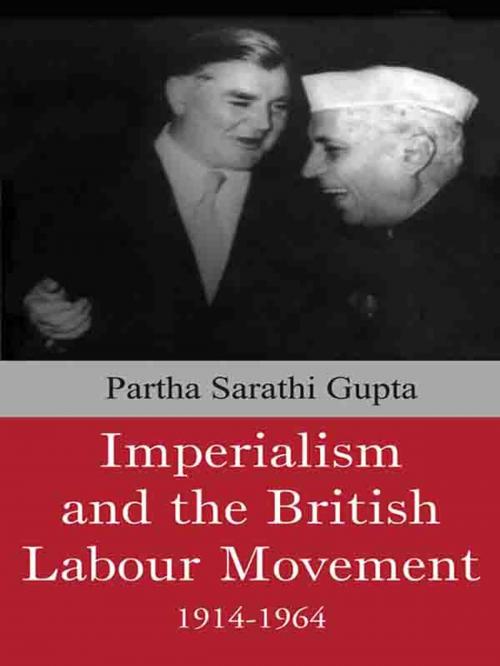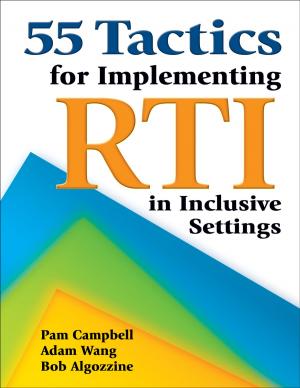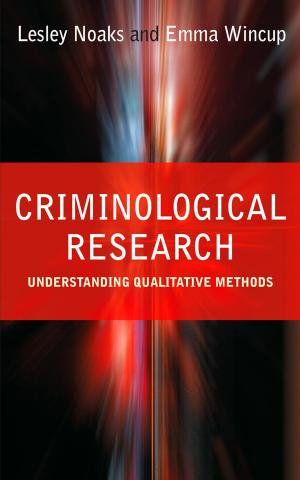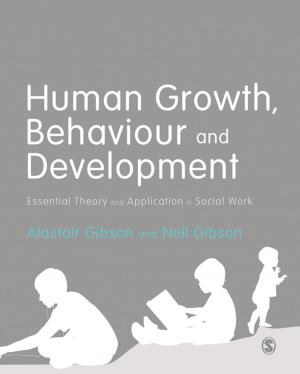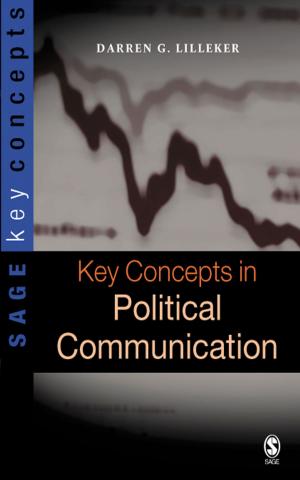Imperialism and the British Labour Movement, 1914-1964
Nonfiction, Social & Cultural Studies, Social Science, Cultural Studies, Ethnic Studies| Author: | Partha Sarathi Gupta | ISBN: | 9789351500148 |
| Publisher: | SAGE Publications | Publication: | June 11, 2002 |
| Imprint: | Sage Publications Pvt. Ltd | Language: | English |
| Author: | Partha Sarathi Gupta |
| ISBN: | 9789351500148 |
| Publisher: | SAGE Publications |
| Publication: | June 11, 2002 |
| Imprint: | Sage Publications Pvt. Ltd |
| Language: | English |
First published in 1975, this book is part of the prestigious Cambridge Commonwealth Series. The General Editor of this series was the legendary historian, Eric T. Stokes. This seminal work on the British labour movement was greeted with great enthusiasm and it gained rave reviews from scholars and readers all over the world.
For years it has been treated as the best reference to study and teach British labour politics. It continues to inspire later research. A revival of interest in the study of labour in the wake of globalization has necessitated a reprint.
The renowned historian C.A. Bayly, has written a lengthy foreword for the new edition. Prof. Sumit Sarkar says about the book, 'It remains a very major work in its area and … has not been superseded by any later work'.
This book examines the attitudes and politics of the British labour movement towards the British Empire and the Commonwealth in the twentieth century. Its focus is not the British working class as such but rather the decision-making and policy-framing institutions of the labour movement, such as the Labour Party, the Trades Union Congress, and their various affiliated organizations. It is decidedly a history of the colonial policy of the British labour movement and not simply of Labour governments.
Though the book was written in the seventies, when labour and class-relations were judged from the point of view of classical Marxism and Leninism, the author challenged such orthodoxies about class in Britain. He argued that class- consciousness takes different forms and the working class can also be divided against itself.
Today, when orthodox academic Marxism has been replaced by a more rounded theory incorporating the relationship between ideology and class domination and other post-modernist perspectives, this book has acquired a new relevance.
The author had used a variety of sources from private papers to public documents, from unpublished sources to oral testimonies in the intensive research that went into the writing of the book.
First published in 1975, this book is part of the prestigious Cambridge Commonwealth Series. The General Editor of this series was the legendary historian, Eric T. Stokes. This seminal work on the British labour movement was greeted with great enthusiasm and it gained rave reviews from scholars and readers all over the world.
For years it has been treated as the best reference to study and teach British labour politics. It continues to inspire later research. A revival of interest in the study of labour in the wake of globalization has necessitated a reprint.
The renowned historian C.A. Bayly, has written a lengthy foreword for the new edition. Prof. Sumit Sarkar says about the book, 'It remains a very major work in its area and … has not been superseded by any later work'.
This book examines the attitudes and politics of the British labour movement towards the British Empire and the Commonwealth in the twentieth century. Its focus is not the British working class as such but rather the decision-making and policy-framing institutions of the labour movement, such as the Labour Party, the Trades Union Congress, and their various affiliated organizations. It is decidedly a history of the colonial policy of the British labour movement and not simply of Labour governments.
Though the book was written in the seventies, when labour and class-relations were judged from the point of view of classical Marxism and Leninism, the author challenged such orthodoxies about class in Britain. He argued that class- consciousness takes different forms and the working class can also be divided against itself.
Today, when orthodox academic Marxism has been replaced by a more rounded theory incorporating the relationship between ideology and class domination and other post-modernist perspectives, this book has acquired a new relevance.
The author had used a variety of sources from private papers to public documents, from unpublished sources to oral testimonies in the intensive research that went into the writing of the book.
